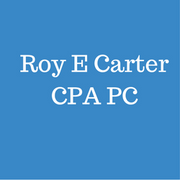
If you're self-employed as a freelancer or independent contractor, your tax return preparation will look a little different than if you were officially employed by a company. Employees have taxes set aside by their employers and receive different tax documentation than freelancers. Here are a few tips to make filing easier despite these changes.
Bookkeeping for Freelancers
1. Plan Ahead
Since you won’t be receiving a W-2 from an employer, you're going to be relying on your own records for much of your filing information. Keep track of your paperwork throughout the year and try to estimate your taxes owed every month or two. This will help you set aside the right amount throughout the year to make sure you can pay the bill in the end.
2. Use Deductions
You have a variety of deductions you can claim if you're self-employed. For instance, if you use an office or workshop in your home, you may qualify to deduct part of your rent. Gas and miles on your car can also count when you drive for business purposes. To claim these deductions, you'll need to keep precise records that separate business and personal expenses.
3. Hire an Accountant
 Tax return preparation can be much more complicated as a freelancer, so having a professional assist you in the process can help you avoid mistakes. They'll also make sure you get all the deductions you're entitled to and save you valuable time which you can use to take on another paid project.
Tax return preparation can be much more complicated as a freelancer, so having a professional assist you in the process can help you avoid mistakes. They'll also make sure you get all the deductions you're entitled to and save you valuable time which you can use to take on another paid project.
For help with your tax return preparation, contact Roy E. Carter, CPA, PC in Staunton, VA. Serving the Augusta County area for almost 20 years, this team of accountants offers you both tax preparation, representation with the IRS, and small business adviser services. To get started, call (540) 886-6251 or contact them online.
About the Business
Have a question? Ask the experts!
Send your question

